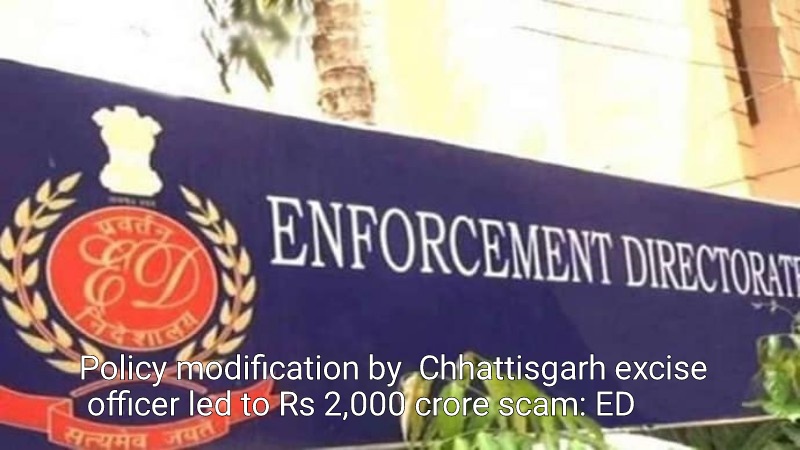
The Enforcement Directorate claimed that Arun Pati Tripathi, the Special Secretary in the Chhattisgarh Excise Department, was in charge of changing the rules that resulted in a Rs 2,000 crore scam in the state. In accordance with the Prevention of Money Laundering Act (PMLA), Tripathi was detained by the ED on May 12 as part of the ongoing Chhattisgarh liquor scam probe.
Tripathi has spent the last seven years working for the Chhattisgarh government and is from the Indian Telecom Services. He is the Special Secretary, Excise Department, Chhattisgarh and the Managing Director of the state organisation, Chhattisgarh State Marketing Corporation Limited (CSMCL).
The ED is looking into the spirits fraud, which occurred between 2019 and 2022 and involved corruption in four different ways: 1) The distillers were paid a bribe for each case of alcohol that the CSMCL (the state agency responsible for the acquisition and selling of alcohol) purchased from them, and 2) illegal country spirits sales were made. In this instance, not a single rupee made it to the state’s coffers; instead, the syndicate kept all of the money from the sale. The illegal alcohol was only sold through state-run stores, distillers were paid to form cartels and get predetermined market shares, and FL-10A licence holders were given the opportunity to earn commission in the foreign spirits market.
‘The ED investigation revealed that Arun Pati Tripathi, through his direct actions at the insistence of Anwar Dhebar, corrupted the entire liquor system of Chhattisgarh to maximise corruption in the department. He made policy changes in conspiracy with his other colleagues and gave tenders to associates of Anwar Dhebar so that maximum benefits could be taken under the four ways,’ said the ED.
Even though he was a senior ITS Officer and the MD of CSMCL, he allegedly violated the principles of how any state excise department should operate by using state-run stores to sell unaccounted-for kacha liquor.
‘His complicit actions resulted in massive loss to the state exchequer and filled the pockets of the beneficiaries of the liquor syndicate with more than Rs 2,000 crore illegal proceeds of crime. He also received substantial share in this loot. Thus, the very objective of CSMCL to increase the state’s revenue and to provide quality controlled liquor to citizens were violated by him for his personal illegal gains,’ the ED added.

Post Your Comments